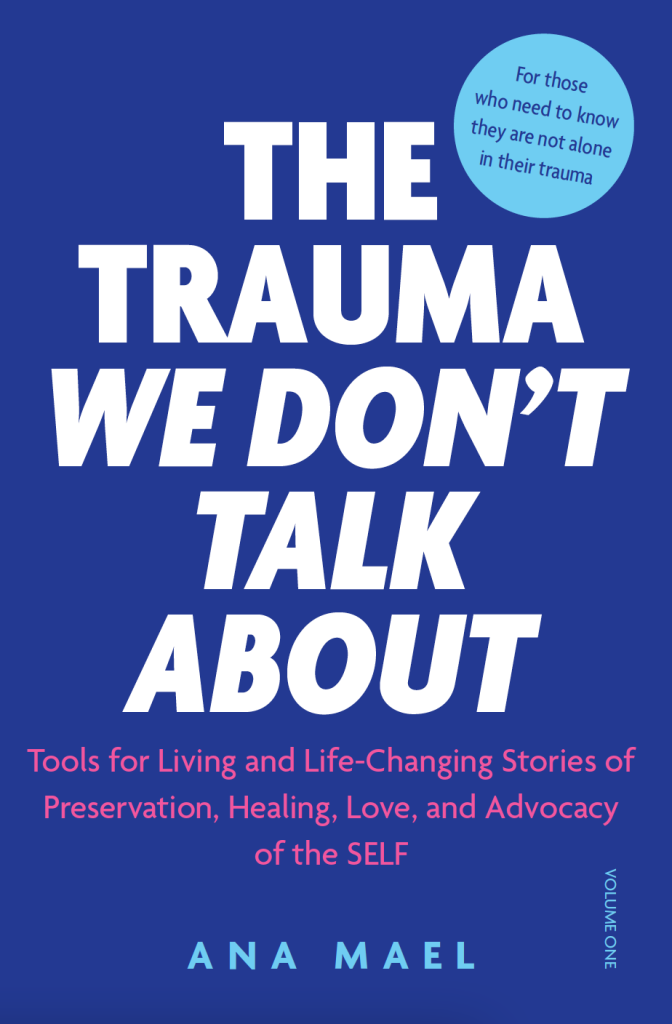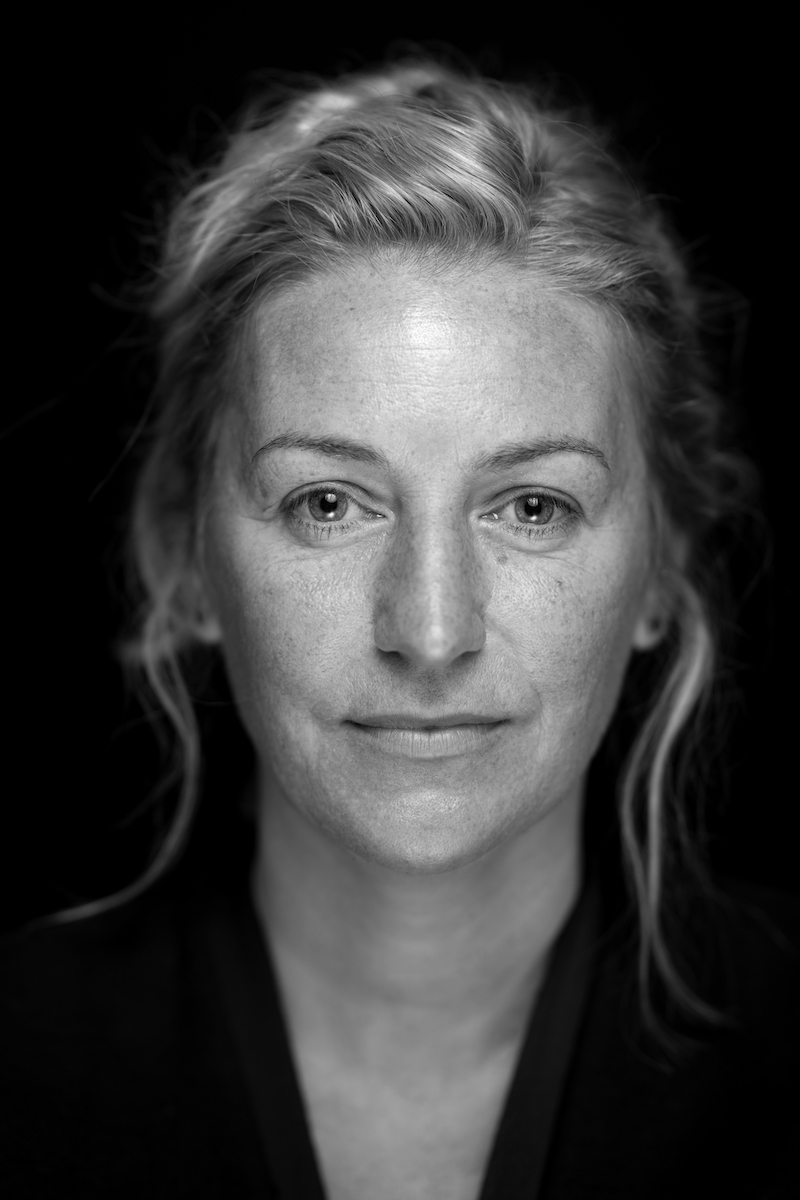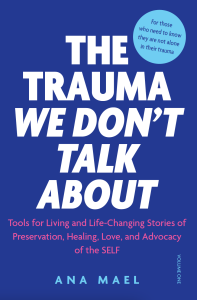Get tools for better living, satirical tales about trauma coping and next steps where we can connect

Hi, I'm Ana Mael.
I'm an author of ``Trauma We Don't Talk About`` series.
Guiding You Home: My Mission is to Offer Solace, Healing, and Self-Compassion on the Road to Trauma Recovery by Breaking a Silence of What Trauma is All About.


What will you discover?
Unveiling the Hidden Truths: Discover the Power of Healing and Self-Discovery in ``The Trauma We Don't Talk About.``
-
1
You Are Not Alone
Discover solace in the shared experience.
-
3
197 Essays
Will leave you feeling validated and empowered.
-
2
Source for Self Development
Bring relevant essay to your therapist, start conversation
-
4
Tools for Living
Embark on a journey towards self-development and healing.
What's inside
197 reflections on experiencing trauma including facts, true stories, satirical tales of coping, and poems about mental health.

COLD BITCH
WERE YOU EVER CALLED DISTANT, ARROGANT OR A COLD BITCH? Do people or you wonder why you’re expressionless? Why can’t anyone read your face? The reason is because having any expression was a trigger for the sadis- tic person you lived with.
What a sadist does is scan their victim’s face, seeing if they feel happiness, and then they try to kill it. They turn your positive emotions into pain and fear, enjoying your unhappiness. They feed off of it. Their sickened mind is aroused by it. You might notice contempt in their eyes and their face filled with self-satisfaction and the righteous dominance they gloat in.
This is how you learned to express nothing. No joy, no happiness, no excitement. You became flat and dry, with a dead expression.
Think about when you stopped sharing any joyful things about yourself and why. Who made you feel worse after they saw you happy? You became blank on the outside to protect yourself from harm. You couldn’t afford to show emotions. It was dangerous.
When most people look at you, they can’t see the richness of your soul, the potency of your mind, the brilliancy, and bravery of your being. Only other trauma survivors can look beyond that blank screen and see what lies beneath. Hiding my depths is how I survived.
So every time I see a blank, flat, and shielded face, I also see a beautiful, rich soul inside. I honor that person, as I honor you. I have hope that the richness inside of you will be unveiled. It deserves to be seen. You have always deserved safety, decency, and love.
In a safe space, you can let the hidden depths of your spirit shine, if you choose. Still, you know as well as I do, your essence is full of abundance, grace, and beauty.
EASE DOES NOT EXIST
Ease does not exist in the trauma body. Nothing is easy.
There is no ease, even in simple or enjoyable tasks. It doesn’t exist.
Going on vacation is not easy.
Having a friend over for dinner is not easy.
Taking your kids to the park is not easy.
Playing games with colleagues to break the ice is not easy.
The simplest task from the outside is a freaking nightmare inside of a trauma body.
A casual, effortless, carefree state is not present in the trauma body.
There is only high alert, constant overthinking, and preparing for the worst-case scenario.
You always feel like something bad is about to happen. That is a constant in the PTSD mind. You prepare yourself to be attacked, ashamed, terrified, or ready—right this second—to save lives, because your child could break their neck and die, or a truck could crush you, leaving you lifeless on the highway, or your friend could choke while eating pie and die at your dinner table.
Ease just does not exist in our lives. Alertness exists.
Preparedness exists.
Imagining scenarios worse than horror films exists.
Living in a state of constant hypervigilance, where some unwanted, unsafe thing is about to happen, exists. (Just as it did so many times in the past.)
You can’t shake it off.
You can’t read enough, meditate enough, journal enough, or exercise enough.
Unease resides inside your trauma body. There is no peace of mind.
WHAT IS THE OUTCOME OF EMOTIONAL NEGLECT?
YOU MIGHT ALWAYS FEEL UNWANTED, AS IF YOUR very presence repels others. It’s as if you are still a child— despite your wrinkles and gray hair—who needs to justify their decisions, for fear you will be judged or shamed.
This is what emotional neglect does to us. You can’t see yourself as a grown-up in an adult body, but as a scared child of the parents who neglected you; and yet, you’ve been parenting yourself your whole life.
DON’T SHAME YOUR PANIC ATTACK
YOU KNOW WHEN A PANIC ATTACK IS COMING. The turbulence of fear takes over your body and floods you. Once you’re in full panic mode, you’re unable to find your way out. It feels like an inescapable attack, where your body is not able to support you at all.
That scared voice inside your head isn’t helping either. After the attack is over, judgmental thoughts reverberate in your mind, like, How did you allow this? You are so weak and incapable. You need to pull yourself together.
Don’t listen to them. Don’t shame your panic attack.
Your panic attack is the disorganized release of shock and trauma that you’ve experienced in the past. It wants to move out of your nervous system. It wants to be released from your body.
It’s disorganized because it feels unsafe, and the inner critic that judges and shames you makes your panic attack feel even more unsafe and scary. Don’t judge it. Instead, take care of your panic attack like a small child. This can be new and different and incredibly healing for your nervous system.
Nurture it, hold it, sing to it, and rock with it, as you longed to be nurtured, held, sung to, and rocked when you were in the midst of shock and trauma. Your brain remembers that you faced your fears on your own, without support.
No one was there for you, and you learned that nobody will be there to hold you in your fear now. Your panic attack is the residue of the comfort and soothing you didn’t receive when you needed it most. Who was holding you back then? Who was soothing you?
The task now is to learn to tend to your panic attack, to be with it, as someone should have been with you. When the panic arises, open this page, read these words, and gently rock your body alongside your panic attack. Nurture it. You’re not alone at this moment as you read these words.
Place a different narrative to this experience. Learn not to see it as an attack, but as fear from the past being released. In this way, you can welcome it. Allow it to move through your body and out into the air, understanding this will happen as many times as you need it to happen in order to heal.
As the fear exits your body, more space opens for your vital energy and peace to appear. Make this space for your- self and trust in the wisdom of your body to do what it needs to do. Move and hug your body as you gently release old fears.
SPLIT
I YEARN TO CONNECT, YET I CANNOT TRUST CLOSENESS.
YOU ARE A WARRIOR
HOW DO YOU FACE UNCERTAINTY WHEN YOU LIVE IN ISOLATION? Uncertainty kills. Uncertainty coupled with solitude can feel hopeless. There is no one to turn to. And yet, without knowing how, a day, a week, or even a month of uncertainty goes by, and you are still alive.
You are overcoming uncertainty on your own, for one second, one minute, or one day. You don’t even notice you’re doing it, but you do it every day. When you find yourself in that place of deep loneliness, finding your way to the other side of each day, don’t ever think you are somehow less for being on your own.
There’s a warrior inside of you. That warrior—who knows it will not resign and die—is a precious companion to have inside of you. Own and value that, because it’s yours. It’s your resiliency and life energy leading you to overcome days that are filled with internalized fear and exhaustion.
Uncertainty and isolation have become emotional states that you can overcome. You do it every day, even if you dis- miss or disbelieve it, and even if you never give yourself any credit.
If you’re reading this while still in that isolated place, embrace these words filled with love and strength, and know that tall PTSD and trauma survivors experience these feelings. We are all warriors who keep battling, keep winning, and keep going forward. You are not alone in this. Eventually, those internal battles happen less frequently, resulting in more time to rest and a greater capacity to enjoy a life of peace.
Chapter 1. Trauma Mind
You Are Not Going Crazy. Sanity Amidst the Chaos: Understanding the Normalcy of Trauma’s Impact on the Mind.
Chapter 2. Isolation and The Lost Self
Navigating the Storm: Understanding the Normalcy of Feeling Lost, Disconnected and Controlled by PTSD.
Chapter 3. Trauma Insights
Uncover the Hidden Reality: Delving into the Truths and Facts about PTSD and Trauma.
Chapter 4. Self Advocacy and Truth in Cynicism
Surviving Trauma: A Journey of Cynics and Skeptics. Tools to Speak Up and Empower Yourself.
Chapter 5. Oppression and Abuse of Power
Exposing the Injustices: A Deep Dive into the Insights of Oppression and Abuse of Power Through Lived, Collective and Ancestral Trauma.
Chapter 6. Trauma Body
Reclaiming Your Trauma: Honoring Your Body’s Journey and Connecting Back to Your True Self.
Chapter 7. Still, Yet Possible
The Wisdom Within: Harnessing the Power of the Human Body to Heal and Thrive Beyond Trauma.


